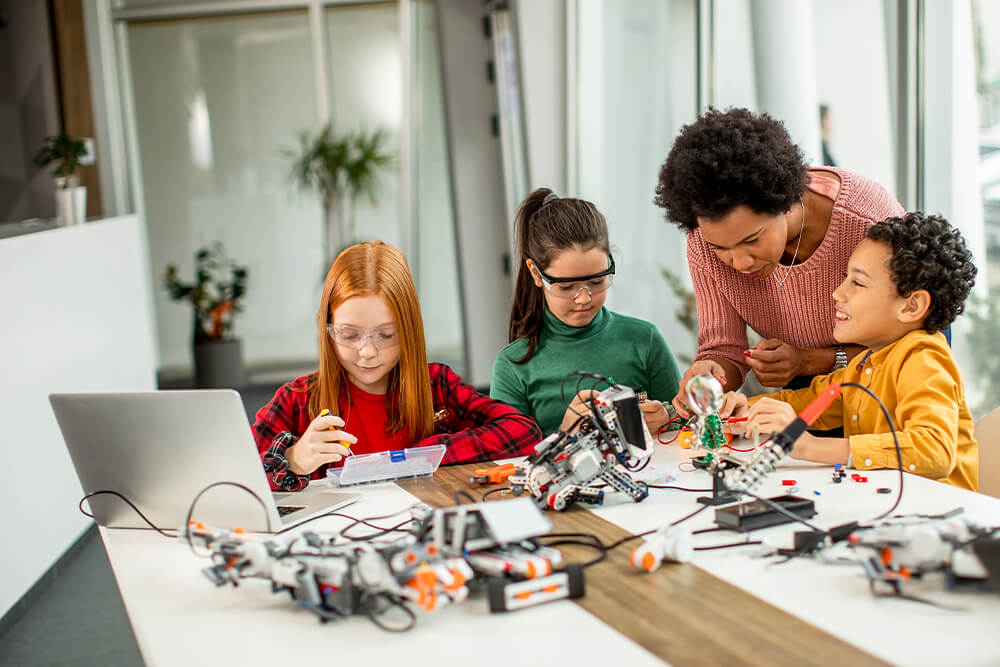Career skills are the ones that will be applicable to some degree in every role. These skills are not specifically for one job or role but fall into a broader, more general category. These skills are transferable between jobs and therefore quite advantageous to the individual who possesses them. Career skills make the resume more attractive to employers and therefore, learning them improves and expands career options.
The best part is that these skills can be developed and learned in the house. Here’s a list of valuable career skills along with recommendations on activities and methods that will help develop these skills in children:
Planning skills
Discuss the aspirations of the children with them, and help them visualize goals and set achievable targets. Ask them to create tangible, visual representations of their goals in the form of vision boards or drawings. Involve them in creating their routines; the routines must provide sufficient time for assignments, hobbies, chores, and rest.
Teach them how to plan ahead; they could make use of a wall calendar or a digital planner for recording dates and tasks. Encourage the children to periodically review their plans and outcomes to see what’s working, and what can be improved. Allow them to practice and make mistakes. Enlist the children to help in planning family activities or events, and this can serve as an opportunity to demonstrate your own planning techniques.
Communication skills
Arrange discussions, debates, and meetings to develop the public speaking abilities of the children. Involve the siblings or the friends of the children in these activities. Provide encouragement and constructive feedback wherever necessary. Motivate the children to write letters or emails to family, friends, and community organizations. If you want your child to have a strong voice (that gets heard) when they are on their career path, you have to allow them to speak up for themselves now (and this includes disagreeing with you). You have to demonstrate what healthy communication looks like. Communication skills
Decision-making skills
Create scenarios or use role play to simulate decision-making scenarios. Some simulation games available online may also prove useful in teaching children about the positive and negative consequences of decisions. In day-to-day life, provide the children with age-appropriate choices related to which they need to make decisions. For the younger kids, it could be a simple decision like selecting a snack, and for the older ones, it could be decisions related to elective courses or extracurricular activities. Before they arrive at a decision, encourage them to discuss with you the pros, cons, and possible outcomes of their decisions. After the decision is made, help them evaluate the result of their decision and consider what they could have done differently or what they learned from the experience.
Research Skills
To develop research skills, start with the basics. Introduce the concept of research and teach them about reliable and unreliable sources of information. You can provide them with topics, or ask them to come up with their own, which you can then explore with them. Provide the children access to age-appropriate books, websites, and other resources. Teach them about plagiarism through examples that they have to sort into plagiarised and not plagiarised. Encourage the children to explore a variety of sources, take notes, organize the notes, and cite sources properly.
Teamwork and Interpersonal Skills
Encourage the children to participate in community service or volunteer work. Taking part in local events, charity drives, or even environmental initiatives will hone their interpersonal skills. They will not only learn teamwork but also compassion and acceptance of diversity, which will prepare them not only for a career but for life.
Time Management Skills
For a thorough understanding of the concept of time management, practice it at home with the children. Set time limits for different activities. Encourage the use of timers or alarms for tracking the time and completing tasks within the allotted time. Teach the children time management methods like the Pomodoro technique, Eisenhower Matrix, Eat that Frog, and ABCDE method; encourage them to apply these to the tasks they perform at home.
Basic budgeting and money management skills
Give your children a regular allowance and encourage them to allocate this money to different categories like saving, spending, and giving. They can learn how to track income and expenses in spreadsheets through an Excel beginners course. Make them set saving goals for something they desire like a game or a trip. Help them budget for their own parties and guide them in the process. Involve the children in age-appropriate financial planning and discussions.
Problem-solving and critical thinking skills
Engage the children in board games, puzzles, and brain teasers to enhance their problem-solving skills. Ask open-ended questions to encourage them to think critically; discuss possible solutions with them. Present engineering challenges or engage them in science experiments to promote creative thinking.
Conclusion
With some conscious efforts, your home can provide a nurturing environment where your children will feel safe to explore their interests, take risks and develop new skills. The skills will help the children become independent and move confidently towards a brighter future.

